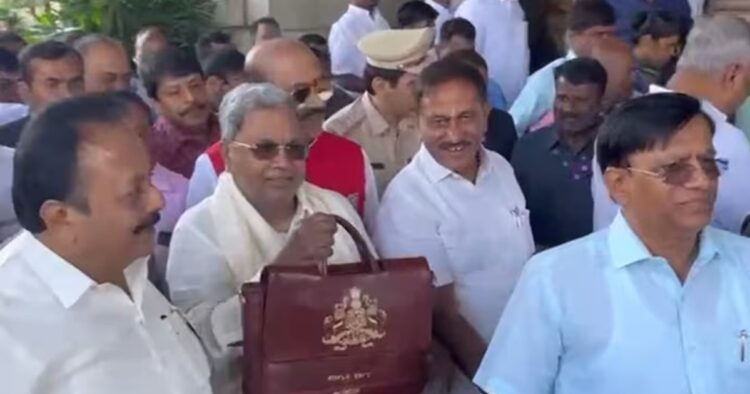Controversy Surrounds Karnataka CM Siddaramaiah’s Budget Presentation
Karnataka Chief Minister Siddaramaiah’s recent budget presentation has stirred controversy, with critics raising concerns about certain allocations and the tone of his address. While the budget included provisions for fee reimbursement of minority students and development of Waqf properties, it also mandated a 60% use of Kannada in various establishments.
Allocation Scrutiny and Political Agenda
Critics have scrutinized the allocations made in the budget, particularly the Rs 100 crore earmarked for the development of Waqf properties. Questions have been raised about the prioritization of this allocation amidst other pressing needs and fiscal constraints. Furthermore, Siddaramaiah’s critique of the previous BJP government’s financial management has been seen as a political move, diverting attention from the state government’s own responsibilities.
- An allocation of Rs 100 crore has been directed towards the development of Waqf properties within the state.
- The Karnataka Waqf board will oversee the registration of workshops for ‘maulvis’ and ‘muttavallis’, potentially leading to increased governmental control and interference in religious affairs.
- Specifically, Rs 10 crore has been dedicated to constructing a Haj Bhavan in Mangaluru, which some critics argue may disproportionately benefit one religious community over others.
- Furthermore, a significant amount of Rs 200 crore has been set aside for the development of the Christian community, raising questions about the equitable distribution of resources among different religious groups.
- The minorities’ development corporation is slated to implement programs worth Rs 393 crore, a move that some perceive as favoritism towards specific religious minorities, potentially excluding others from accessing similar opportunities.
Opposition Walkout Amid Allegations Against Centre
During the presentation, the Opposition staged a walkout as Siddaramaiah launched a scathing attack on the BJP-led Centre. Alleging that Karnataka had suffered significant financial losses due to inadequate funds from the Union government, Siddaramaiah blamed the Centre for the state’s revenue deficit, sparking heated debate and division in the assembly.
Criticism Over Kannada Mandate and Cultural Declarations
The mandate for a 60% use of Kannada has drawn criticism from certain quarters, with concerns raised about its practicality and potential impact on businesses. Additionally, the declaration of Vishwaguru Jagajyoti Basavanna as a cultural leader and the printing of his slogan in government offices have been viewed skeptically, with some questioning the government’s priorities and intentions.
Unanswered Questions and Growing Tension
As debates continue and tensions rise, unanswered questions linger about the practical implications of the budget allocations and the efficacy of the government’s policies. The divide between the ruling party and the Opposition appears to be widening, raising concerns about the state’s governance and the ability to effectively address the needs of its citizens.
BJP MP Tejasvi Surya reacted to the government’s allocation to the Waqf Board and expressed on social media, “To take money from the Hindu temples and use it to fund the religious institutions of non Hindu faiths is the standard SOP of ‘secular’ leaders like Siddharamiah. Secularism as practiced by them is not just a stick to brow beat the Hindu, it is also a tool to financially enrich others at the cost of the Hindu.
To take money from the Hindu temples and use it to fund the religious institutions of non Hindu faiths is the standard SOP of ‘secular’ leaders like Siddharamiah.
Secularism as practiced by them is not just a stick to brow beat the Hindu, it is also a tool to financially enrich… https://t.co/rYFxSzjadv
— Tejasvi Surya (@Tejasvi_Surya) February 16, 2024
The controversy surrounding Siddaramaiah’s budget presentation underscores the complexities of governance and the challenges faced in balancing competing interests and priorities. As criticism mounts and tensions escalate, the state’s leadership must navigate carefully to ensure effective governance and address the concerns of all stakeholders.

















Comments